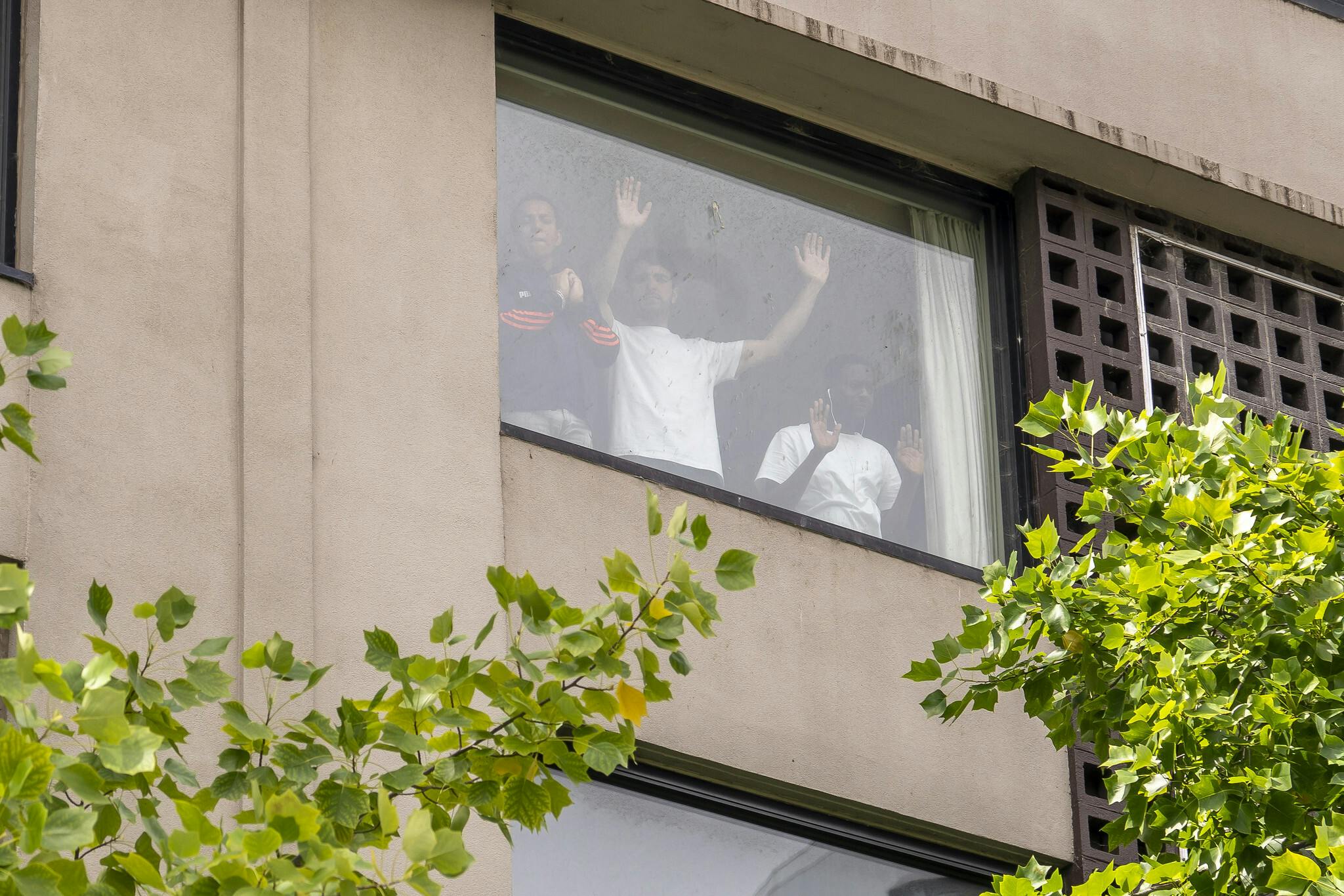For these refugees, lockdown has lasted more than eight years

As governments and the press around Australia remind us each day about the terrible health effects of lockdowns, we should remember the lockdown that refugees have been subjected to for years, with the full support of politicians from both the Liberal and Labor parties.
On 13 August 2012, Labor Prime Minister Julia Gillard announced that refugees attempting to reach Australia by boat would be imprisoned on Nauru and Papua New Guinea’s Manus Island. A year later, on 19 July, Kevin Rudd declared that no asylum seeker arriving by boat would ever be allowed to live in Australia, ensuring that thousands of refugees would have years of their lives wasted in the government’s offshore concentration camps.
The camps were notorious for the physical and psychological tortures they were designed to inflict on detainees. A recent Facebook post by “Park Prisoner”, an anonymous account run from within Melbourne’s Park Hotel, where more than 30 refugees remain trapped since being moved from Manus Island in 2019, reflected on their experience:
“We went through every torture that can possibly happen to someone, when we protested for our freedom we have been beaten to death, neglected medically, starved for three weeks, cut the power and water off for several weeks, the mental and emotional abuse was everyday, females were raped and sexual assaulted, and they were forced to shower for two minutes otherwise a security guard would come in to tell you ‘your time is up’.”
Thirteen people have died as a result of their offshore imprisonment. In February 2014, Reza Barati was killed on Manus Island when camp guards violently attacked refugees who rioted after being refused answers about their futures. Others died after being refused proper medical treatment. On 26 April 2016, Omid Masoumali set himself on fire, a final striking protest against his treatment.
In 2016, the Guardian published leaks known as the “Nauru files”, which contained details of more than 2,000 cases of “assaults, sexual abuse, self-harm attempts, child abuse and living conditions endured by asylum seekers”, calling it “a picture of routine dysfunction and cruelty”. Two years later, reports emerged of several children detained on Nauru suffering from “resignation syndrome”, an extreme psychological reaction in which the sheer depravity and hopelessness of their situation caused them to fall into a coma.
Most of those who were detained on the islands have now moved elsewhere, but this was no act of mercy by the government. Many were deported to an unknown fate. Those who have been allowed to live in the community in Australia lack basic rights, like the right to study or work, and are denied access to welfare or Medicare. They live under constant threat of deportation—the government refuses permanent protection even to those it admits are refugees, periodically requiring them to reapply for protection. And, of course, as of 30 June, there were still 233 people detained on Manus and Nauru, according to statistics compiled by the Refugee Council of Australia.
Of particular significance have been the so-called Medevac refugees, several of whom were moved from Manus and Nauru into hotels in the middle of Melbourne and Brisbane. They were supposedly moved to receive treatment for illnesses caused by almost a decade in detention. “Instead of getting treatment we were locked up in hotel rooms”, wrote the Park Prisoner account, “and after almost two years not even one single person of us have been treated properly in fact every one got worse because we are still the indefinite detention that caused us the sickness”.
Refugees have never given up the fight to end the policy of indefinite detention, and their resistance has inspired supporters in Australia to stand in solidarity. The 2014 protests on Manus, in which Reza Barati was murdered, were one of many that erupted over the years against the detention regime. One significant moment came in 2017, as the refugees on Manus resisted when the government attempted to move them into even worse conditions by shutting off power and water to the detention centre. These events inspired thousands of people to join protests demanding an end to what was dubbed the Manus siege.
Today, protests continue inside and outside detention. Several refugees in Melbourne’s main detention centre have resorted to a hunger strike, and supporters have held daily vigils for those locked away in Melbourne’s Park Hotel. Regular protests have been organised by groups such as Melbourne’s Campaign Against Racism and Fascism, to get as many of us as possible onto the streets to make it loudly known that we won’t accept the government’s torture of refugees.
The people who run our society use refugees as political pawns, whipping up racism when it suits them and strengthening their nationalist agenda with appeals to the necessity of “border security”. They wring their hands at the idea of sacrificing the profits of business to save human lives by implementing COVID lockdowns, but happily lock up refugees for eight years and counting in the interests of political power.